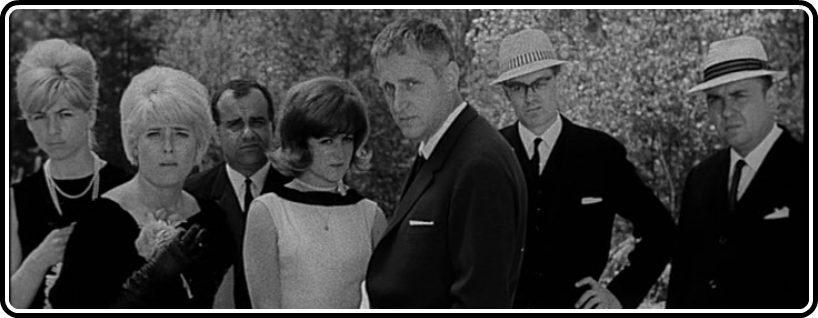
As my Journey Through the Eclipse Series settles into a prolonged look at the Pearls of the Czech New Wave set for the third week in a row, I find myself in a minor dilemma when it comes to writing up a review of A Report on the Party and Guests. Going with the assumption that few who read this have yet had a chance to see the film, I’m reluctant to divulge much of what happens as its brief story unfolds. I watched it without even so much as reading the liner notes, and I think my first viewing was enhanced by not have a clue as to what I was going to see. So I’d like to encourage a similarly blind approach going in to others who are approaching this wry little allegory for the first time. My inclination is to say very little, other than offering a few thoughts prompted by the images I’ve captured and uploaded here, in the hopes that I simply prompt a little curiosity in readers rather than engage in much in depth analysis of Nemec’s story and what I think he’s trying to communicate with this film.
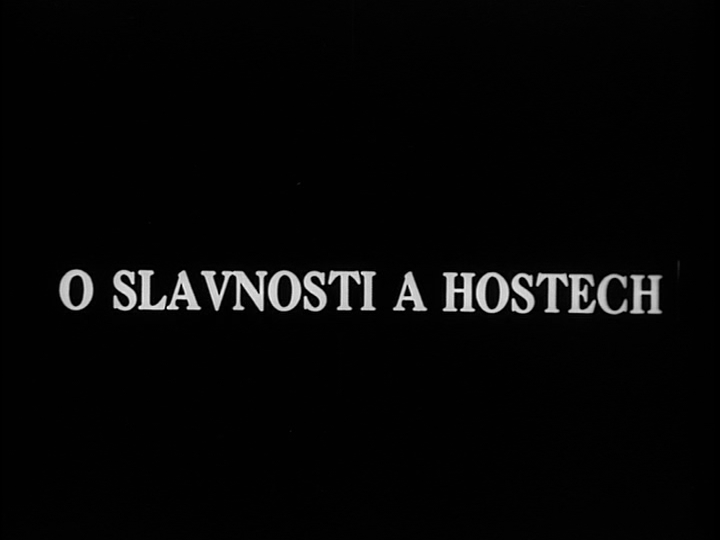
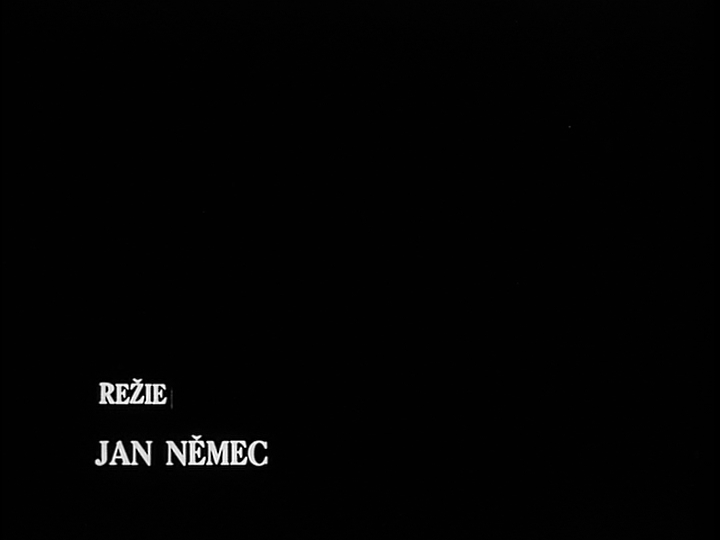
So I’ll do my best to avoid spoilers and just offer up a few relatively safe and generic observations about the director and this film’s fate at the hands of Czechoslovakia’s government censors when it was submitted for their approval in 1966. Even though he was still young and hadn’t produced a lot of work, Jan Nemec had already drawn the skeptical scrutiny of various ministers of propaganda, who looked askance at A Report on the Party and Guests‘ lack of merit when it came to advancing the cause of a Marxist vision of social progress. Along with the similarly ill-fated Daisies, Nemec’s second feature film was immediately banned from public presentations for a time, though the short-lived eruption of free expression that we refer to as the Prague Spring in 1968 loosened the clamps just enough to allow both films to gain an audience before being officially shuttered once again. From a 21st century viewpoint, Daisies is probably regarded as the more shockingly provocative of the two, with its sharper sexual overtones and anarchic sensibility. But A Report on the Party and Guests drew even sterner condemnations, despite its mild, realistic visual elements and what seems now like a muted satirical edge directed at humanity’s eternal penchant for cowering conformity in the face of petulant petty tyranny. The film’s underlying message was delivered with just enough deadpan but plausibly deniable subversion to give Nemec hope that he might somehow slip it past the censors – but once the impact of his jabs was felt, both he and his movie proved unable to shake off the grouchy approbation of the government monitors.


Again, without wanting to spell out much by way of specifics, the story begins with a pleasant summer’s afternoon picnic out in the forest, where a group of four men and three women are enjoying themselves, idle conversation and some fresh sweet wine chilled in a nearby woodland stream.
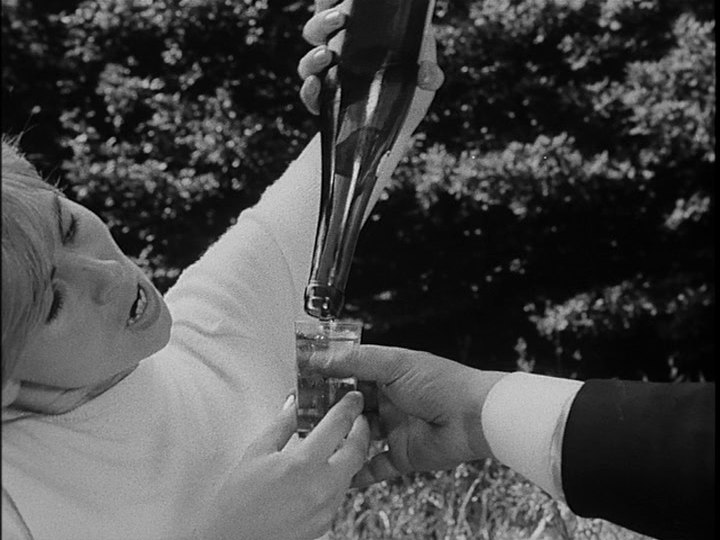
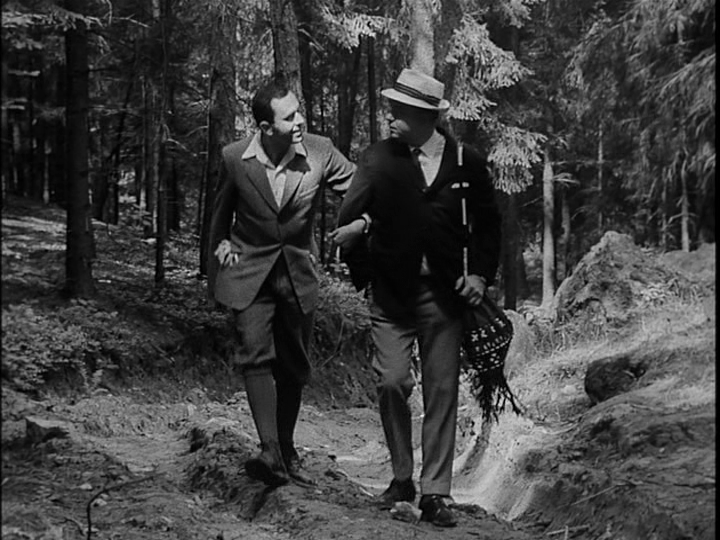
The mood is casual, festive and also somewhat optimistic, as the picnickers are also looking ahead to some kind of celebration set to follow their idyllic retreat. But when their jaunty expedition is joined by another group strolling through their neck of the woods, their plans undergo a swift and unanticipated adjustment.


No longer free to chart their own carefree course, they now have to reckon with input and direction from people they don’t know or necessarily trust… but are unable to avoid or persuade to leave them alone.
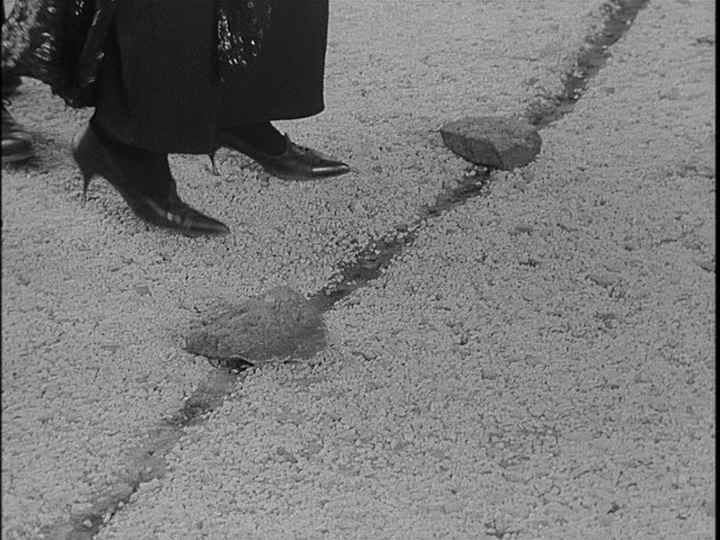
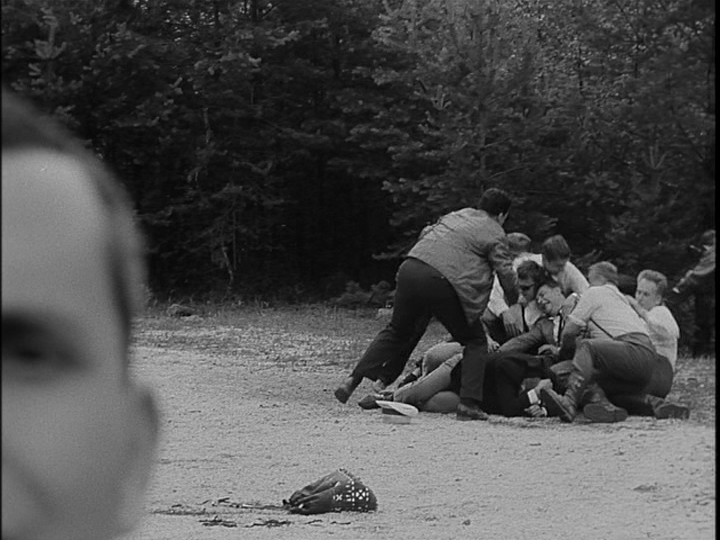
Absurd, arbitrary rules are imposed on the companions, along with bullying, over-reactive consequences for the one who tests the limits of what the new bosses are willing to tolerate.
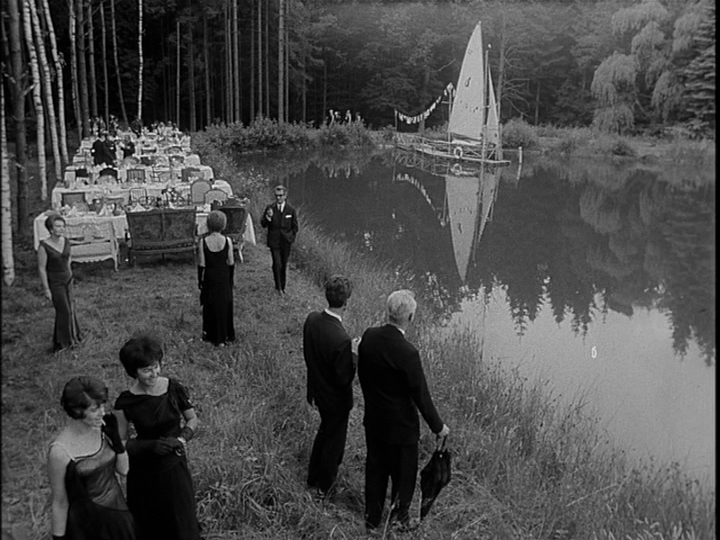
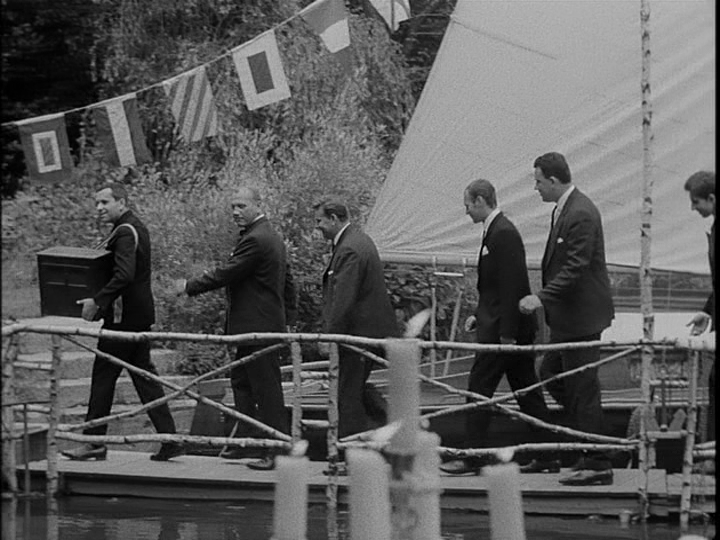
And why in any case would these travelers choose not to go along with the new order of things? Especially considering the splendid arrangements and generous accommodations made on their behalf – a lovely lakeside feast, fine food, drink and furnishings. Banish all thoughts of rebellion and refusal – indeed, a humble stance of gratitude seems like the only fitting response to such a kind and lavish invitation.
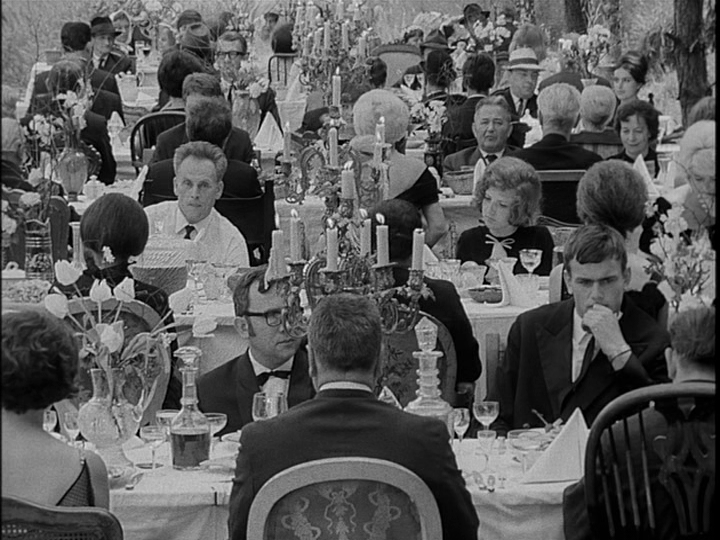
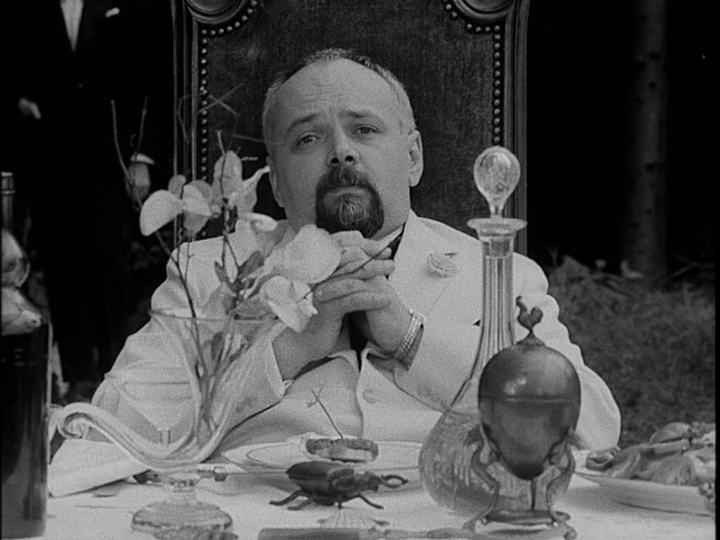
And all that the benevolent host requests is that each of the guests he has specially invited – every last single one of them! – merely accept his gift and remain seated at the very spot that has been reserved especially for them… until they’re told that it’s time to depart to wherever they’re supposed to go next.


Who has the audacity, the brazen and callous contempt in their heart to spurn such a conciliatory offering? Just the thought of such a bitter snub is enough to infuriate those who recognize and appreciate the leader’s magnanimity. And yet, even among those who can’t quite bring themselves to rebel, a certain reservation, an unwillingness to unequivocally yield, seems to have taken hold. A most disturbing implication…
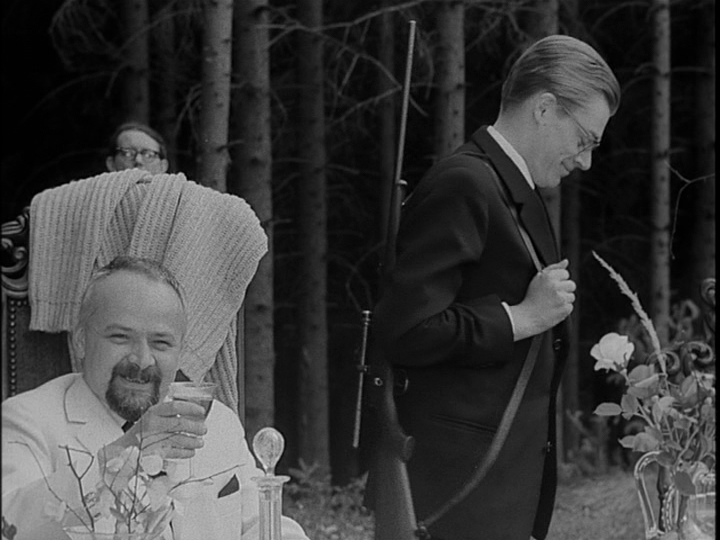
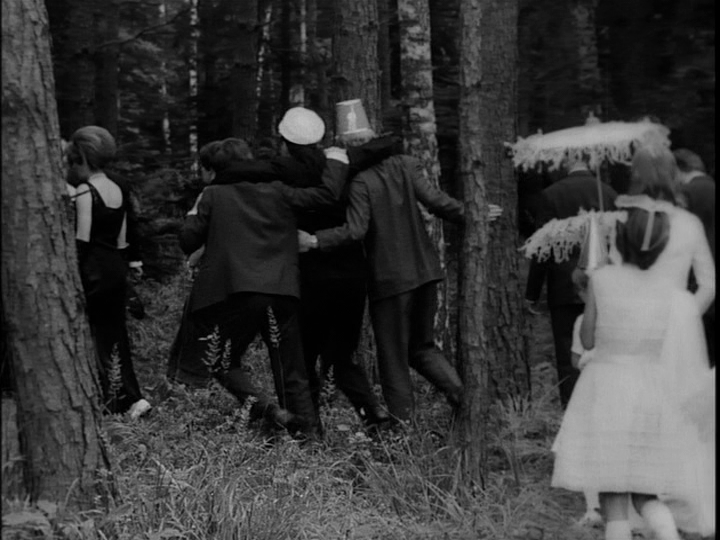
But the leader is wise, cunning, resourceful… one could even say inspirational, in his ability to transform his disappointment at such effrontery into a festive game and pastime that brings a touch of joy to his followers. A sheep has strayed from the fold… let us go chase him down and bring him back to the safety of our pasture!


With the crowds thus diverted, there’s ample time and opportunity to refill the glasses and enjoy another round of refreshments. Until it’s time to put out the lights and call it a night…





this is akin to the Bela Tarr mass march scene of villages from his Satantango film off to their mythical communal farm demise as crafted by the one in power. leading the flock to their willing slaughter. them thinking the whole time it was nothing more than a sunday picnic. remember, no matter how free you feel, someone else is taking notice and notes as they become increasingly bothered and agitated. banned on release, this film came to close to revealing the real power structure in the communist eastern block Europe back in the late 1960’s. disarming and unsettling.